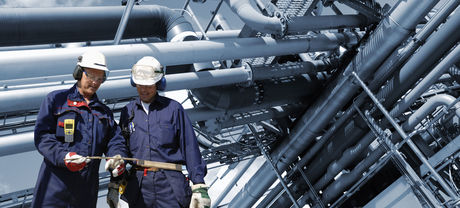Workforce education is a shared responsibility

It is widely agreed that for Australian manufacturing industries to survive and prosper in the global economy we need to continuously work smarter and invest in new technologies and automation in order to create flexible manufacturing processes with increased efficiency. Companies that want to invest in the factory of the future need to invest in connected technologies and big data analytics — often referred to as Industry 4.0 or the Industrial Internet of Things.
With the increase in automation, many unskilled jobs will start to disappear and the workforce will be required to understand and react to what smart machines require. In the factory of the future, an operator’s skill set will shift more towards that currently required by technicians. This enhanced skill set will enable businesses to increase productivity and proactively exploit niche markets. While a skills gap may not be evident today in many businesses, a combination of rapid advancement in technology and changing demographics — with the baby boomer generation approaching retirement — will surely place a spotlight on this issue in the near future.
Developing a highly skilled workforce that is able to adapt to the fast pace of technological change should be a priority for progressive businesses in Australia. Given an investment in new equipment, even highly skilled experienced workers cannot immediately adopt new technology without assistance and training. Investment in the worker to develop the skills to fully understand the potential gains, and to exploit the equipment to achieve the desired increases in productivity, goes hand in hand with the investment in the technology itself.
While government-funded training incentives such as the Industry Skills Fund are available to assist with the digital disruption, it is vital that progressive businesses in Australia recognise and prioritise the investment required to equip their own workforce with the skill set required for the factory of the future. Simultaneously, it is also incumbent on the suppliers of the technologies to recognise that the adoption of the new technologies will advance only with deeper understanding of the benefits that can be realised.
Suppliers must recognise that the product itself is only part of the solution and in many cases will not be adopted until the market is ready to recognise the value of the solution on offer. To increase acceptance of new technologies, suppliers need to work closely with customers and even competitors to ensure that Australian manufacturers are in a position to recognise, accept and embrace the long-term benefits of increased revenues and efficiencies that can be derived from the investment. In many cases this sharing of knowledge will not give an immediate return but can be considered as a longer-term investment in order to develop the appropriate market conditions.
It is paramount, however, for all to recognise that education for the current and future workforce is a shared responsibility for both the suppliers and users of technology, as well as educators. To contribute to an efficient, thriving manufacturing sector, suppliers must be open to share their expertise — and in turn, manufacturers must be open to recognise and accept the support on offer. If we are to survive and prosper in the global economy we need to work together to give Australian industry the competitive advantage that in the long term benefits everyone.
The US market opportunity Australian engineering firms need right now
Australia is in the midst of an engineering talent crisis, but recuiting graduates from the US...
2026 Thought Leaders: Jimmy Martin
Jimmy Martin of AMCS Group discusses the use of AI in the waste and recycling industry.
Australia must rethink the foundations of industrial automation
In order to compete globally, we need a willingness to rethink the foundations and build...












